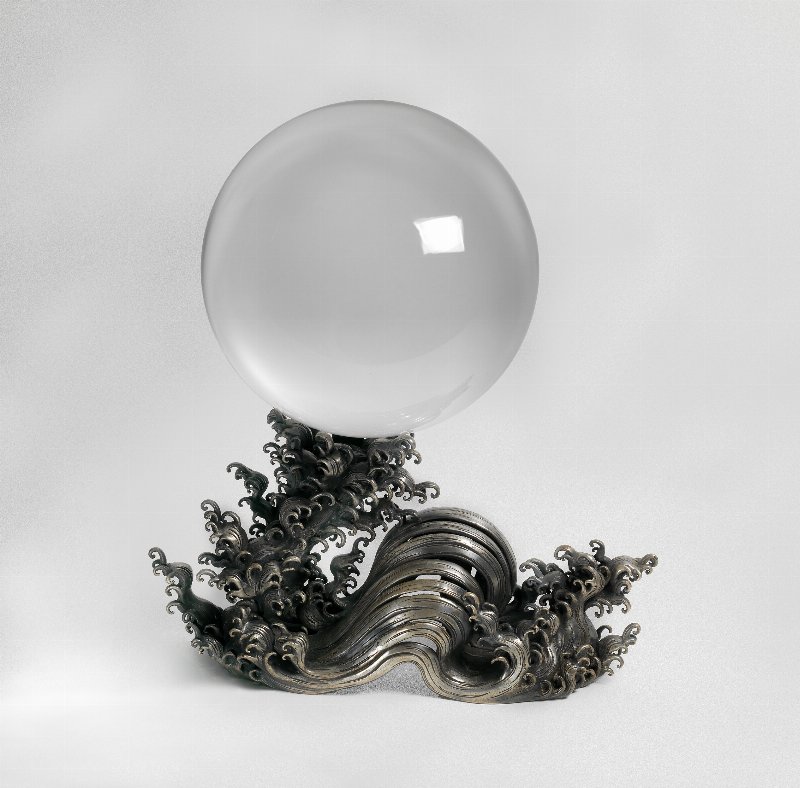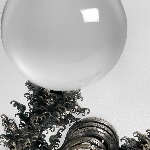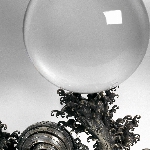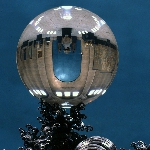Crystal Ball
C681A
Location: On Display in the Asia Galleries
From: Unknown
Curatorial Section: Asian
| Object Title | Crystal Ball |
| Object Number | C681A |
| Current Location | Asia Galleries - On Display |
| Provenience | Unknown |
| Period | Qing Dynasty |
| Date Made | 19th century CE |
| Section | Asian |
| Materials | Rock Crystal |
| Description | The origins of the Penn Museum's crystal ball, both the location where the crystal was mined, and the place where the sphere was polished, are unknown. It was purchased in 1927 from The Far East Shop, a fine arts division specializing in objects made of special gems inside the Wanamaker's department store in Philadelphia. It was given as a gift to the Penn Museum in memory of George Byron Gordon, the director of the museum at the time, who had recently passed away. It came with the name "Dowager Empress" attached to it, named after the Empress Dowager Cixi who ruled over China's last Dynasty. However, no evidence has ever come to light that connects the sphere with the Empress, or any other account of the sphere's origins. The silver stand, in the shape of a wave, was made in Japan, and may have been made to order after the sphere was purchased. It is the fourth largest crystal sphere in the world, with a diameter of 25.4 cm, and weighing 49 lbs. Two spheres in the Smithsonian (32.7 cm) and (27.6 cm) and the Crow Collection in Dallas (28.9 cm) are larger. The sphere is not made of glass, but rather from a naturally-occurring crystal of pure quartz, and was shaped into a sphere through years of constant turning in a semi-cylindrical container filled with abrasive powders and water. |
| Height | 25.4 cm |
| Width | 25.4 cm |
| Credit Line | Purchased from Wanamaker's Department Store; subscription of Eldridge R. Johnson, 1927 |
Report problems and issues to digitalmedia@pennmuseum.org.





